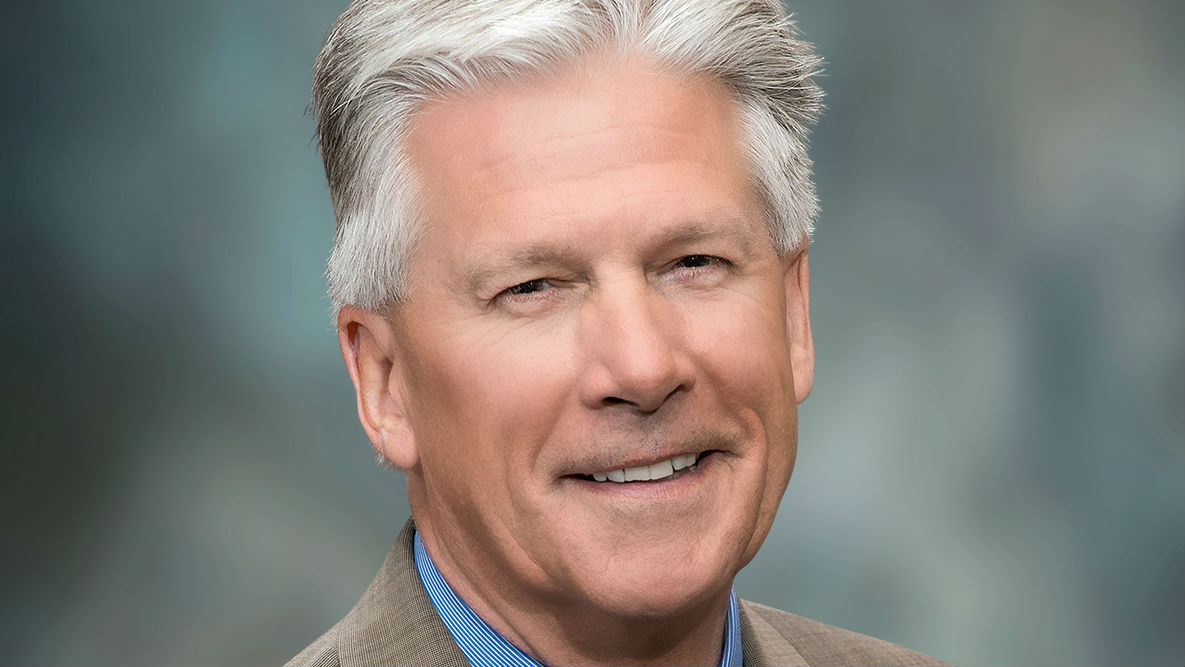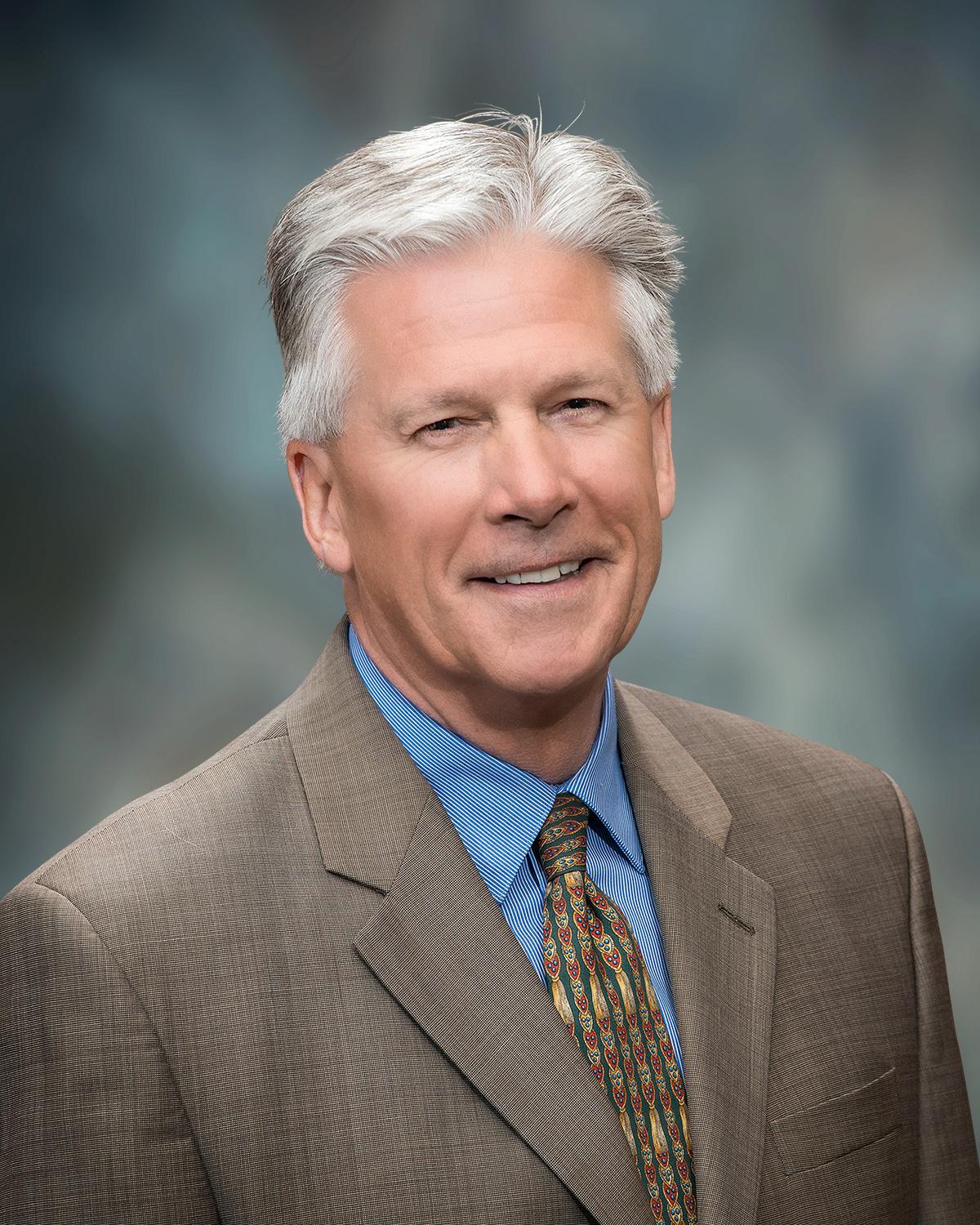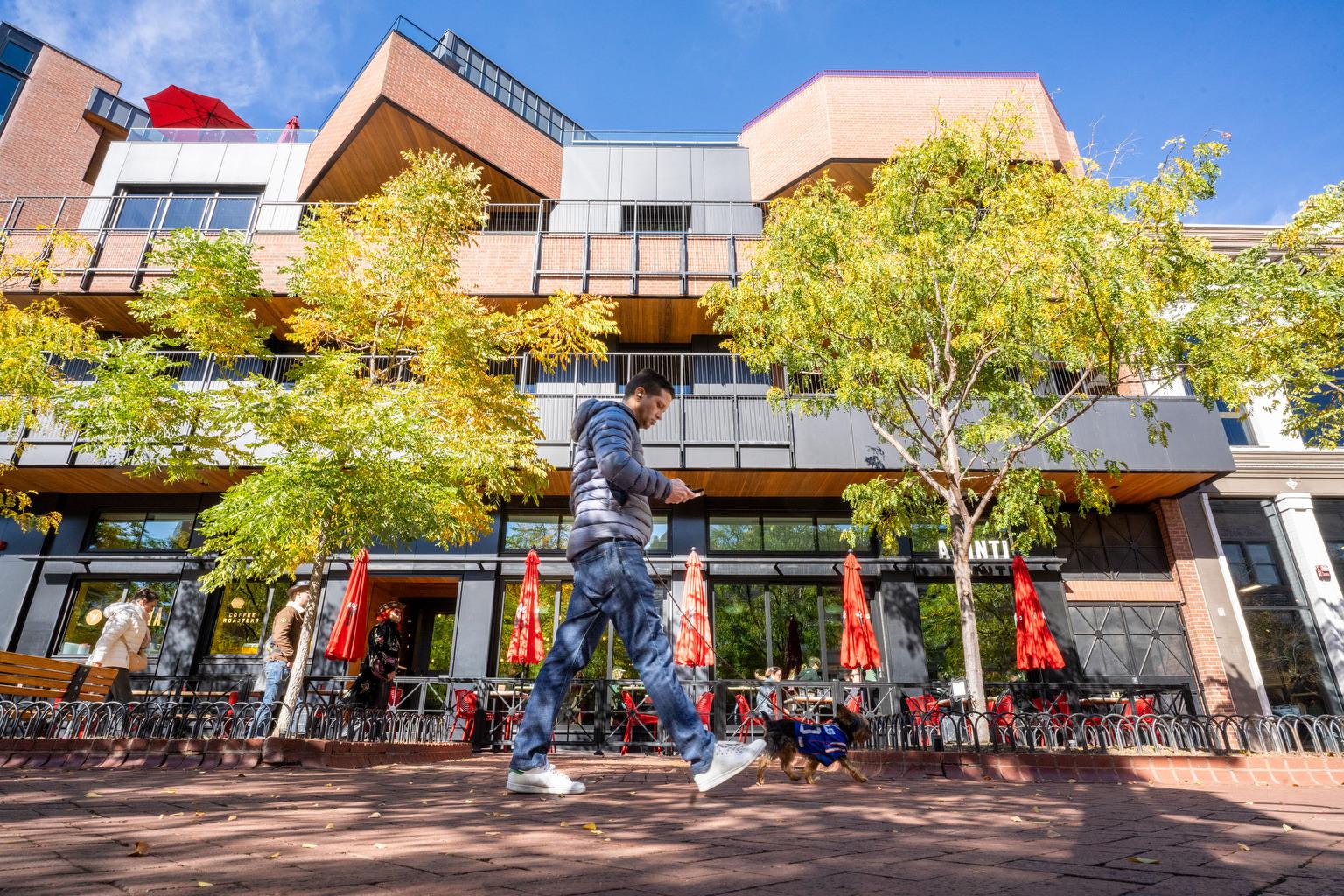

The largest city on Colorado's Western Slope has a new leader. Earlier this month, the city council named at-large member Rick Taggart mayor.
His appointment comes as Grand Junction is seeing some economic momentum -- the unemployment rate is down and sales tax revenue is up. But the city, with an energy industry that has experienced repeated booms and busts, still lags behind Denver.
Taggart spoke with Colorado Matters host Ryan Warner. They also discussed issues such as internet access and suicide.
Read The Transcript
Ryan Warner: This is Colorado Matters from CPR News. I’m Ryan Warner. The largest city on Colorado’s Western Slope has a new leader. Earlier this month, the Grand Junction City Council named at-large council member Rick Taggart mayor. He has a background in the outdoor industry with Marmot, Swiss Army Brand and Timberland. He becomes mayor as Grand Junction sees some economic momentum and yet lags behind booming Metro Denver. In addition to the economy there, we’ll also talk about high-speed Internet access, homelessness and teen suicide, which has emerged as an issue there, and Mayor, welcome to the program. Mayor Rick Taggart: Thank you very much. RW: Grand Junction is doing fairly well these days. Unemployment’s down, sales tax collections are up, but your economy is still very dependent on the energy industry, which can be fickle, to say the least. Where do you see the greatest opportunity for diversifying your economy there? RT: I think we see that diversification coming from several industry sectors, most notably the outdoor industry. We’re blessed to be in a community where there’s tremendous cycling in the area, there’s tremendous hiking, there’s skiing, golf. Differing from what folks on the Front Range face, we can be to skiing within forty-five minutes and we can be on trail bikes and trail running within five minutes. And so the ability to combine a wonderful outdoor lifestyle with a workplace gives us tremendous opportunities for the future, and it’s what brought me to Grand Junction to buy Marmot many years ago was that balance between my love of the out of doors and my business. I think the second area: we’re seeing an emerging tech industry and tech entrepreneurs, and the university is helping us a great deal there with the situation of an engineering full, engineering school coming online in the next few years. So I would expect to see even more young entrepreneurs associated with tech and then of course, we’re the regional hub when it comes to medical service as we have the largest medical community between here and Denver and here and Salt Lake City, and so I would expect to continue to see that area grow significantly. But diversification is absolutely critical because we, well in my time here, even though I’ve been away at times on my corporate ventures, I’ve seen boom and bust now three times, and we’ve got to take those peaks and valleys out of this economy. RW: Three times. Yeah. I mean, a bit of history here: May 2, 1982 became known as “Black Sunday” for much of Western Colorado. That was when Exxon announced it was shutting down a project in the region, putting thousands of people out of work and I guess what, you moved in the 1980s to Grand Junction. So you can certainly reflect on those booms and busts, and it sounds like you want to avoid that, and yet at the same time, there’s some optimism under this new administration that oil and gas will have a resurgence on the West Slope as well. So are these things fundamentally at odds? Can they coexist? What are your hopes? RT: They can coexist. I think the danger, though, is, and I saw this. We have some great partners in this community that are really working with us on economic development and are really leading the charge, and that’s our Grand Junction economic partnership, our chamber and one of the finest incubators in the world. I think the danger if the energy sector comes back strong, which there are indications with the Jordan Cove project that that may in fact happen, is that we become complacent as a community and we just cannot afford to be complacent. It’s, energy and extraction industries are going to be a significant part of our economy when the dollars and cents are there and it’s a reasonable cost to extract, but in between, we have to have a much more diverse base. RW: I’ll say that the Jordan Cove, that’s the energy project involving liquefied natural gas and export terminal over in Oregon but which connects into the inland west. I know that Halliburton in Grand Junction has also made some hires recently, but you talk about the balance there, not putting all the eggs in one basket. In terms of potential additions in Grand Junction, U.S. Senator Cory Gardner has said he’d like to see the Bureau of Land Managements, which oversees vast acreages in the West, moving west, possibly to Grand Junction and that moving the headquarters there could mean hundreds of jobs, according to The Sentinel. Do you know where that stands? Are you actively pushing for the BLM to be in Junction? RT: We haven’t, per se, sent any letters as of this point. I think we’re watching, very carefully, what’s taking place back in Washington and I think when the time is appropriate, we will weigh in, and that might come very soon. Certainly, we would like to see the BLM out here in Western Colorado to service the western part of the United States, given the fact that I think I’ve seen numbers that say well over 90% of those BLM public lands exist in Western United States. So it only makes sense to better understand the importance of those lands in our local economies; it only makes sense to have that office out here in Western U.S. and if we’re fortunate that it moves in the direction of Western Colorado, we’d be delighted. RW: But it sounds like you’re playing it cool until you think that the time is right to weigh in. I understand that Congress would have to sign off on that. I want to go to April’s city elections. Grand Junction voters overwhelmingly rejected a sales tax increase to fund a new event center there. This is a center you supported. One projection estimated that it could attract about 80,000 new visitors to Grand Junction and around $30 million in retail sales revenue. What do you make of the failure? RT: Were, you were in a meeting. You, it sounds like you were listening to a meeting I was having with our city manager here just a few minutes ago because certainly, a lot of speculation as to why it went down in a very significant fashion. It was about 75% “no” and 25% “yes”. I’ll give you my speculation on it and it’s something I think we need to research to find out better. There are other needs in the community right now that are very much foundational needs, and I think a good amount of the community, as much as many of us would have liked the community not to make an either/or decision, I think the community in fact did make an either/or decision and said, “We have some foundational issues that desperately need to be resolved. We’ve got to… RW: Yeah, give me an example of one. RT: Well School District 51 is, has been underfunded for a great deal of time and because of its being underfunded, the physical plans have really deteriorated, and they have a - RW: When you say “physical plans”, do you mean classrooms, things like that? RT: Classrooms, how those classrooms are in fact outfitted from a technology standpoint, the buildings themselves, the infrastructure, the HVAC systems. They’re just very, it’s a very old set of assets and I’m not sure that the school district has yet come to a final number; I’ve heard anything from $120 million all the way up to a $200 million, although I think the final ballot issue is probably going to be on the smaller side of that. But when you start to consider that, and the county has a significant shortfall from a public safety standpoint, and they are also looking at a sales tax increase somewhere in the neighborhood of a third of a cent, and when you start realizing that those two are very much foundational issues. And by the way, some of that money also comes into a 911 comm center that, we have a comm center that in fact does all of the dispatch work for both police, sheriff and fire and EMS in one facility, that’s also underfunded right now, and it’s a part of the county. RW: So it’s really about taking a look at the landscape and what else voters might have seen coming down the pike, and I’ll just say that the Mesa County Valley School District 51, it’s one of the largest in the state. Like one of, like the tenth or something like that. Let’s take a quick break and broach some other issues with the mayor of Grand Junction. He’s Rick Taggart. This is Colorado Matters from CPR News. You’re back with Colorado Matters from CPR News. I’m Ryan Warner. Let’s return to my conversation with Grand Junction’s new mayor, Rick Taggart. And Mayor, in 2015, voters in Colorado overturned a state law that prohibited communities from having control over their own Internet access, and that gave city and county leaders the ability to negotiate with Internet providers on installing on optical fiber cable or high-speed Internet in the area, but earlier this year, the Grand Junction City Council voted not to move forward on a proposed broadband contract. Is that a block to the very business growth and diversification you said earlier that you want? RT: It’s not really a block; it was the particular approach that was being taken and that was for us to incur $70 million of additional debt and a real concern about taking on $70 million of debt and not taking advantage of some of the resources that are in the ground today. We - RW: So you think it was the nature of that proposal, that that long-term that the question will be answered? RT: I believe yes and in fact, there are some discussions going on right now, both with the incumbents, and I know each one of us as council members are going to meet with the incumbents and listen to their proposals, and there are two proposals that I know are also coming from larger firms that have a slightly different idea of a public-private partnership that may push this issue even further forward. RW: I want to talk about suicide. So seven Grand Valley teens have killed themselves since the start of the school year. One Grand Junction high school graduate started an online petition last fall; she said she’s not blaming the school, but thinks there’s not enough talk about the issue of mental health on campus, particularly after a suicide. Some teachers have told CPR News that they have concerns in that arena as well. Last week, Grand Junction High School principal Ari Goldberg told us teachers are not typically trained as mental health counselors, and so they partnered with the Mesa County Health Department and local organizations to provide services. Ari Goldberg (on tape): I don't know if the answer is just hiring mental health and putting them in schools. It’s a very complicated situation because really, you have teenage children who, it really goes way beyond the walls of a school. RW: Goldberg also said social media adds another layer to this. You’re a former board member, I believe, of the Western Colorado Suicide Prevention Foundation. How do you think this city can assist schools? RT: Well I think, again, I would say it is a really complicated issue and a complex issue, and there’s no, I wish there was a simple fix for this, and you are right. I was one of the founding board members of the suicide coalition in this community because I lost a very, very, very close friend and still to this date, I scratch my head and wonder what I could have done differently. I think we as a city, we have to do everything we can to help the mental health specialists and do everything we possibly can. RW: Can you give an example of what that might be? RT: Well in terms of when they need help on a grant, we have a facility here called Mind Springs and Mind Springs is in the process of growing its capital, its infrastructure. Can we help them from helping them on their grants? Can we help them as a cosponsor? What can we do to in fact bring, continue to build that mental health base within the community? And then that’s - RW: Let me just say: Mind Spring helps those suffering from mild to severe mental illness. They also deal with addiction in Western Colorado. RT: They do; they very much do. I think the schools and the principal is correct. Do we need to be furthering, in District 51, a situation of more mental health experts within the school district? I know the university has a distinct department, which is part of the student services group, a group of mentors that is working with students in trying to identify the stresses of, that students are going through at university level. RW: This is at Colorado Mesa, I gather? RT: This is Colorado Mesa and so we just need to be as supportive as we can. We are not mental health experts and I don’t see us playing a role, per se, of having a department within the city because I think the experts, we really need to, we need to help them in any way we can. RW: So you see it as a supporting role? We have just under a minute. Do you have some thinking on why Grand Junction has had these suicides, such a high rate? RT: I don’t and certainly, and I don't know that there’s a direct correlation between the health of economies and suicide, but certainly I have my concerns when families are struggling from a financial standpoint. We are, while our job, unemployment rate has now dropped into the 3.2%, that sounds good in comparison with last year, but I’m still worried. Are some of those people underemployed and what kind of pressure does that put on the family? RW: And we know that Mesa County has lagged behind the metro area, for sure, in that regard. Thanks for being with us; he’s Rick Taggart, Grand Junction’s new mayor. I’m Ryan Warner; this is Colorado Matters from CPR News. |









